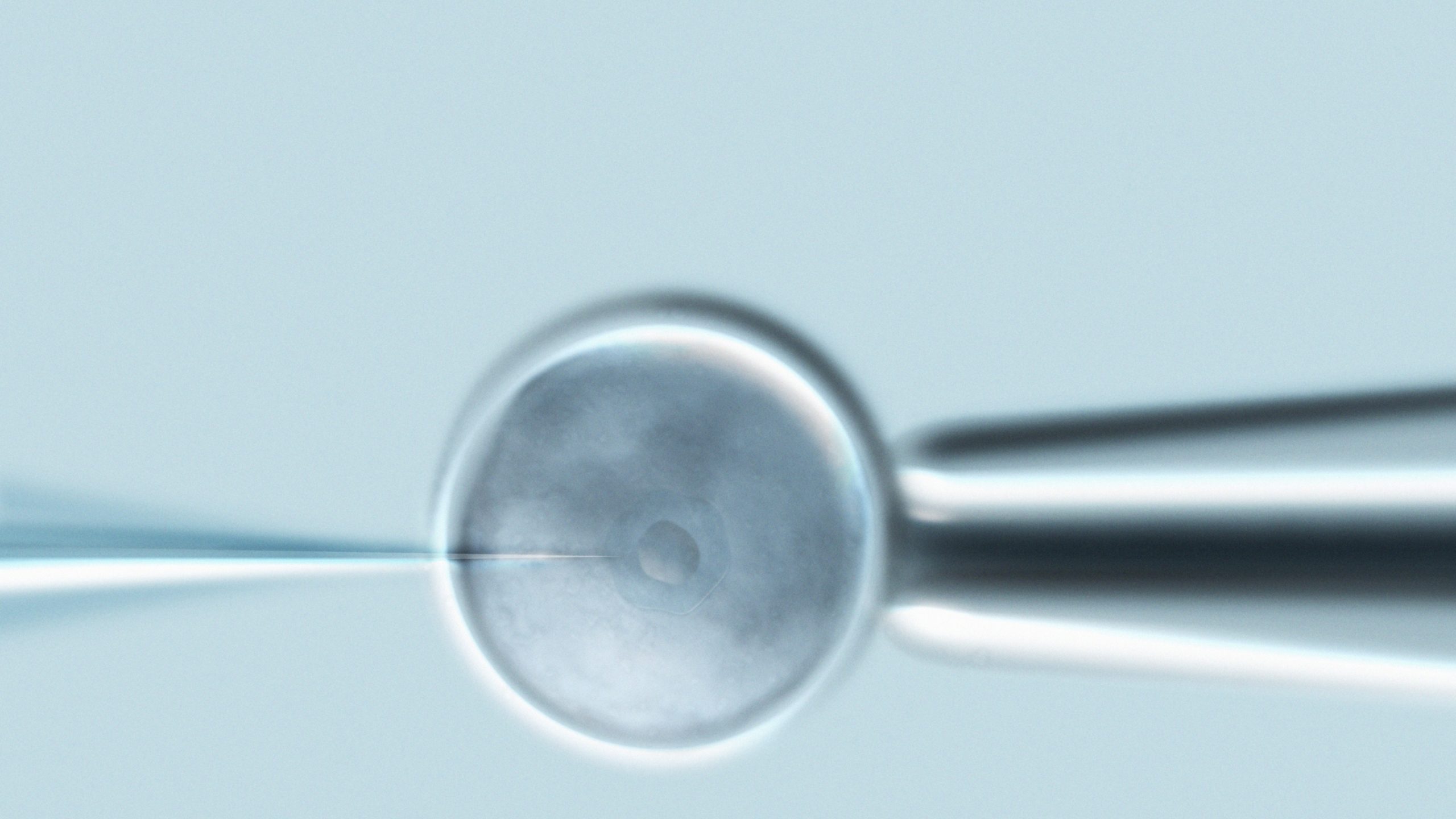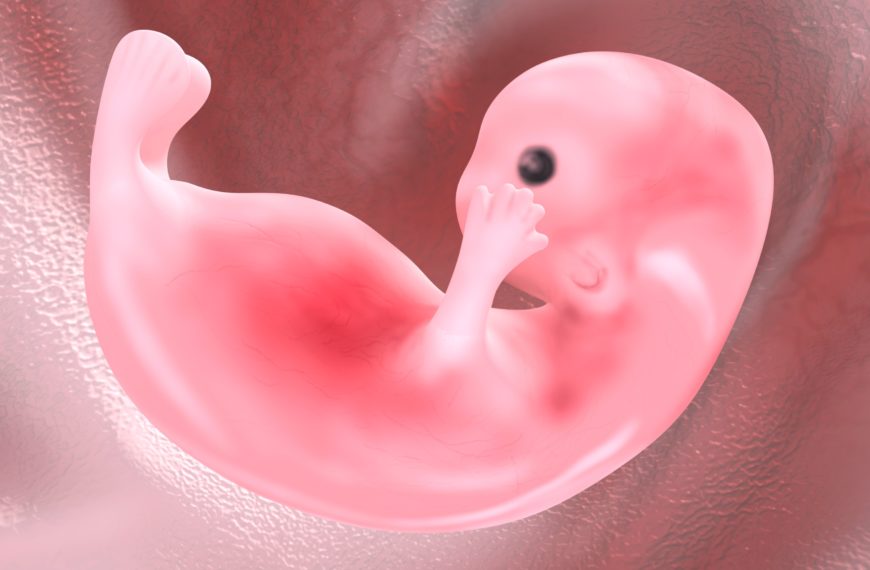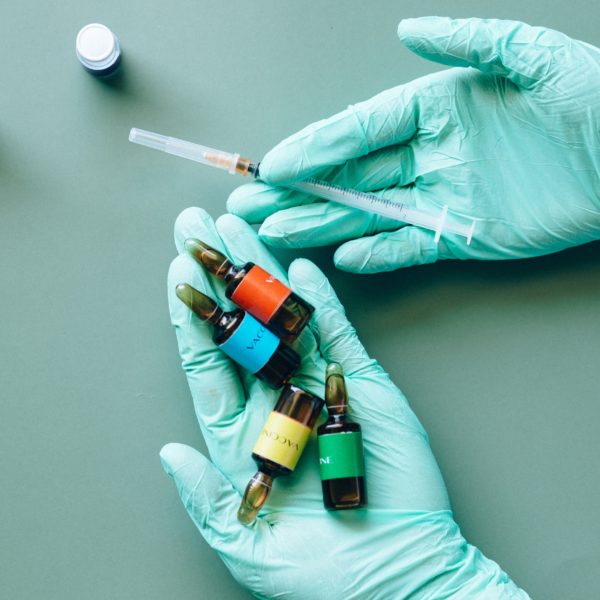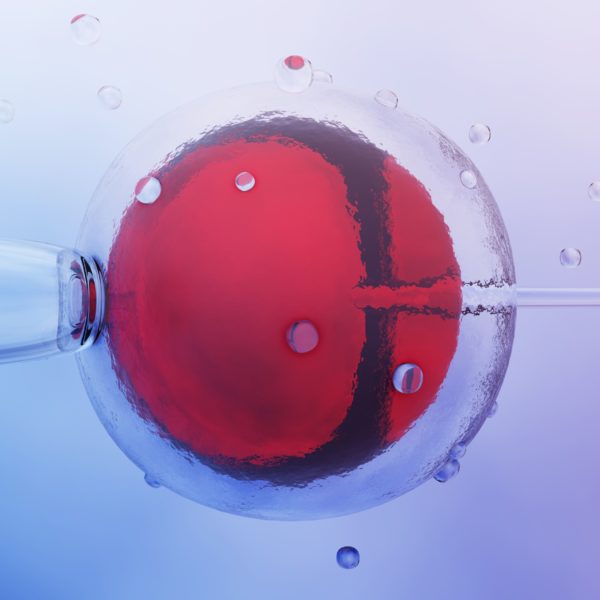Intracytoplasmic sperm injection (ICSI) is an advanced in vitro fertilisation (IVF) technique used to treat severe male infertility, among other fertility problems. In this procedure, a sperm is injected directly into an egg to achieve fertilisation.
One of the main advantages of ICSI is its high success rate, making it an ideal option for many patients facing serious fertility problems, especially when semen quality is a determining factor.
As part of IVF, the cost of ICSI treatment ranges from £3,500 to £5,500, depending on various factors such as the clinic, the protocol used and any additional services required.
👩🔬 At Rainbow Fertility, we have state-of-the-art technology and an expert team in ICSI.
If you are considering this technique, we can advise you without obligation. Request your first consultation here.
Table of contents
1. What is ICSI?
ICSI (IntraCytoplasmic Sperm Injection) is an in vitro fertilisation technique in which a sperm is microinjected directly into an egg. This is done using a specialised micro-needle that selects the best quality sperm to maximise the chances of fertilisation.
The ICSI procedure is ideal for cases where there are severe problems with the male’s semen, such as low motility or insufficient sperm concentrations, as only a minimal amount of sperm is needed to fertilise the eggs.
2. Differences between conventional IVF and IVF-ICSI
Both techniques are part of in vitro fertilisation, but ICSI and conventional IVF differ mainly in the way fertilisation is carried out:
- Conventional IVF: The sperm must pass through the barriers of the egg to fertilise it naturally.
- ICSI: A sperm is selected and injected directly into the egg using a micro-needle.
Although ICSI is more complex and technical, it allows for higher success rates in cases of severe male infertility. In addition, the cost of ICSI is usually similar to that of conventional IVF in many clinics.
3. When is ICSI performed?
ICSI is recommended in the following cases:
3.1 Azoospermia
Azoospermia refers to the absence of sperm in the semen. In these cases, ICSI allows sperm to be obtained directly from the testicle using techniques such as testicular biopsy.
3.2 Oligozoospermia
In oligozoospermia, the concentration of sperm is low. If the sperm are of acceptable quality, ICSI allows a single sperm to be introduced into each egg.
3.3 Asthenozoospermia
Asthenozoospermia is a disorder of sperm motility. In this case, ICSI facilitates fertilisation, even when the sperm do not move properly.
3.4 Teratozoospermia
This disorder involves the presence of sperm with abnormal morphologies. ICSI allows good quality sperm to be selected, even if they have morphological abnormalities.
3.5 Combination of semen abnormalities
In cases where there are multiple semen abnormalities, such as oligoasthenoteratozoospermia, ICSI is the most effective option.
3.6 Other indications
ICSI is also recommended in cases of men who have undergone a vasectomy, those with infectious diseases (such as HIV or hepatitis), or when cancer treatment (chemotherapy or radiotherapy) has been carried out and semen has been frozen beforehand.
At our centre, we always use the ICSI technique in all fertility treatments, regardless of the cause. This allows us to maximise success rates and offer optimal control over the fertilisation process, adapting to the specific characteristics of each semen sample and egg.
4. ICSI step by step: stages of the process
The ICSI process is very similar to conventional IVF, with the only difference being in the fertilisation phase. The main steps are detailed below:
- Controlled ovarian stimulation: Hormones are administered to stimulate the production of mature eggs.
- Ovarian puncture: The eggs are extracted through a surgical procedure under local anaesthetic.
- Semen collection and preparation: The semen is prepared in the laboratory to select the healthiest sperm.
- Sperm microinjection: A sperm is injected directly into the egg.
- Embryo culture: The embryos develop under controlled conditions.
- Embryo transfer: The best quality embryos are selected and transferred to the mother’s uterus.
- Embryo freezing: The remaining embryos are stored for future attempts.
- Pregnancy test: A pregnancy test is performed to verify the success of the treatment.
5. Success rates and effectiveness
The success rates of ICSI vary depending on the woman’s age and the quality of the sperm. According to the most recent statistics, the pregnancy rates for transfers using the woman’s own eggs are:
- Under 35 years old: 43.7%
- 35 to 39 years old: 35%
- 40 to 42 years old: 21.2%
These success rates may vary depending on each clinic and the individual factors of each couple.
📈 Our clinical results are above the national average, thanks to the experience of our embryologists and the quality of our donors.
Find out more about our success rates here.
6. Price of sperm microinjection
The price of an ICSI treatment usually ranges between £3,500 and £5,500, depending on the clinic and the services included. It is important to note that this cost does not always include medication, which can cost between £1,000 and £1,200, depending on the protocol used.
7. Frequently asked questions
In what situations is ICSI always performed?
ICSI is necessary when there are serious problems with semen quality, such as azoospermia, oligozoospermia, asthenozoospermia or teratozoospermia.
What are the advantages and disadvantages of ICSI compared to IVF?
The main advantage of ICSI is that it allows fertilisation even in cases of very low semen quality. However, it is more complex than conventional IVF and may be slightly more expensive.
What are the risks of ICSI treatment for the patient?
There is no risk to the patient because it is a laboratory technique that is applied to cells.
Do you have any questions?
At Rainbow Fertility, we specialise in treatments such as egg donation, in vitro fertilisation and artificial insemination, among others.
8. Authors and contributors
This article was written by the medical team specialising in fertility at RainbowFertilityBarcelona.com, which is made up of gynaecologists, embryologists and assisted reproduction specialists.
Do you have any questions or need more information?
Schedule a consultation with us at Rainbow Fertility and discover how we can help you. At Rainbow Fertility, we specialise in treatments such as egg donation, in vitro fertilisation and artificial insemination, among others.
Please do not hesitate to contact our professionals at our fertility clinic and they will answer all your questions without obligation.
🌈 Are you ready to take the first step?
At Rainbow Fertility, we accompany you throughout the process with empathy, experience and medical commitment.
Schedule your appointment with us and start your journey towards fertility.















